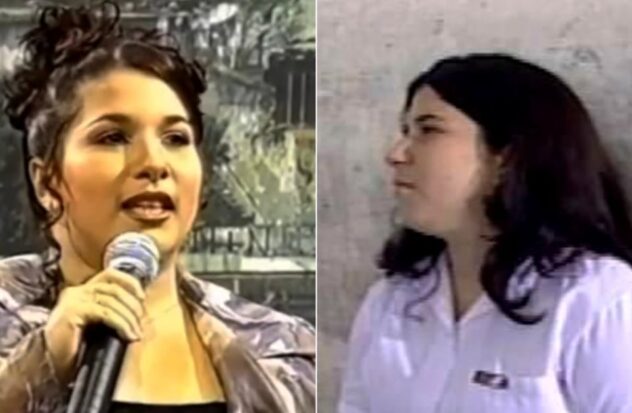Liety Chavianorecognized for her iconic role as Matilde in the series “Double Game”, marked a milestone in Cuban television.
The actress, born in Cienfuegos in 1982, moved to the United States in 2020, leaving behind a career that challenged prevalent stereotypes in Cuban film and television about actors with robust bodies.
An article recently published in September 5the official newspaper of her native province, recalled the career of the performer who captured the attention of the public and the interest of filmmakers, but who ended up separating herself from professional acting.
Chaviano’s talent manifested itself from a very young age, absorbing the art of his father, the director and designer Otto Chaviano. Her passion for acting led her to graduate from the National School of Art in 2003, where she shared classrooms with future colleagues such as Carlos Ever Fonseca y Monica Alonso.
Her debut on the small screen was in “Double Game” (2002), where her character, Matilde, a robust teenager, faced love dissatisfaction and bullying school, standing out for its intense scenes, especially during childbirth, one of the most challenging of her career.
An interview conducted by the singer Alfredito Rodríguez The actress (on an undetermined date) was recently rescued by the Instagram profile cubaactores. “This actress impressed us with her incredible work and without a doubt, Matilda was one of the rawest stories in the series,” the publication said, sharing the interview.
Despite the challenges she faced due to her physique, Chaviano achieved significant roles that resonated with audiences, such as Luisita in the film “Madrigal” (2006) Fernando Perez Valdes. Her performance was praised for showing emotional restraint that contrasted with the vulnerability shown in “Double Play.”
Unfortunately, his career faced constant barriers. Many large actors in Cuba are relegated to roles that often emphasize humor or negative stereotypes. According to the aforementioned media, actors such as Roberto Rodríguez Alfonso y Elizabeth Castro Cedeno have faced similar challenges, getting opportunities primarily because of the physical demands of their characters and not so much because of their acting skills.
Chaviano’s departure for the United States is symptomatic of the migration crisis that bleeds Cuba, but also reflects another chapter in the history of actors who, despite their talent, fight against the prejudices of the industry.
Last December, one of her colleagues in the legendary series, Mónica Alonso, He told his experience of returning to live in Cuba after two decades living in Spain..
“It was at the moment of saturation here in Madrid, where I felt that the city was surpassing me. They were calling me from Cuba to do things, and the same day that my daughter Habana turned five, we went to Cuba. And well, there I worked as an actress,” she explained, although she admitted that after a few months she already wanted to return to Spain and that, financially, it had been impossible for her to support herself on the Island.


